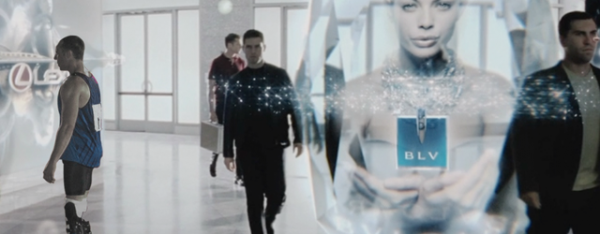Retailers may soon use tagged Facebook photos to identify you in stores

A new tech startup that produces facial recognition camera systems tied to Facebook tagged photos, plans to offer the technology to more traditional physical stores so they could offer you appropriate deals as you enter their business. That’s great for stores that want to have more targeted information about you, based on a bit of your history and likes. But what about privacy, what are the implications?
For now, you are not included in this scheme unless you opt in via Facebook to a third party service. The service would then present tailored deals to your mobile device when you enter an establishment using the technology (currently being tested in Tennessee). Facedeals, the provider, says this simply bolsters and leverages check-ins so that local businesses have more personal information, and by knowing and targeting the products they offer you based on your likes and preferences they can seem more relevant, like discounted or free drinks for using the service at a bar & grill.
But what if you haven’t opted in to the service? Isn’t it kind of creepy to know that cameras still look for a match, so the service will still “automagically” go through the process involving gathering data about you without your opt-in? Not to mention taking your picture without your permission (unless entering a retail establishment is taken to convey a form of permission). The system is obviously hoping its efforts will result in a matched face belonging to someone who has opted in. But if not, will it store the data for later use? Either way, it takes your picture, hoping for a possible match through data mining activity, without your consent.
This means that if Facedeals’ (or similar startups’) equipment gains traction in the market, we could be seeing very real steps toward scenarios portrayed in futuristic movies like Minority Report, where the Chief John Anderton character walks through a mall, and is greeted by avatars welcoming him by name into their store, complete with discount offers calculated from the collection of data they are able to garner about him from various sources.
With a social media feed added to the mix, you could walk into a store and “the store” would not only know who you are, but if you’ve shared family tree information along with birthdays, the store may magically suggest gifts for your mother, since her birthday is in 5 days; but you never asked it to get that information. Or did you? If you don’t protect your profile information on Facebook, you may be inadvertently opting in to the whole scheme.
One comment suggests the technology is only trying to streamline what staff members at a store should be doing anyway, i.e. getting to know customers and offering to sell them things they want that fit their needs. Others complain that it’s a harbinger of events yet to come, where facial recognition might be required through Facebook photo match before you are allowed to use a given service. There are already websites that require a Facebook login to signup, could this now extend to physical storefronts as well, all aided by a hands-off recognition system?
For now, no. This isn’t a Facebook-driven service, it’s only a third party driven venture that interfaces through data from the platform.
Even if you don’t plan on using Facedeals any time soon, now might be a good time to review your profile and secure your Facebook privacy settings, especially related to information sharing and photo tagging. We’ll soon update our series on updating your privacy/security on Facebook to integrate the timeline feature (which I’ve been recently forced into).
Reprinted with permission
 Cameron Camp is a researcher for global security provider ESET and has played a critical role in building the ESET North America Research Lab. Cameron has been building critical technology infrastructures for more than 20 years, beginning as an assembly language programmer in 1987 and eventually becoming an evangelist for Linux and open-source technologies with an emphasis on the security sector. Prior to joining ESET, he founded Logical Web Host in 1998, a data-driven web services company.
Cameron Camp is a researcher for global security provider ESET and has played a critical role in building the ESET North America Research Lab. Cameron has been building critical technology infrastructures for more than 20 years, beginning as an assembly language programmer in 1987 and eventually becoming an evangelist for Linux and open-source technologies with an emphasis on the security sector. Prior to joining ESET, he founded Logical Web Host in 1998, a data-driven web services company.